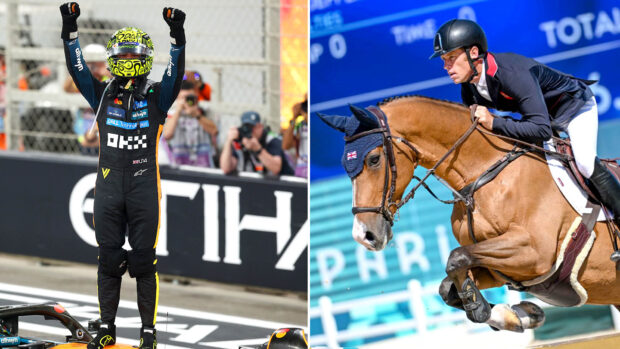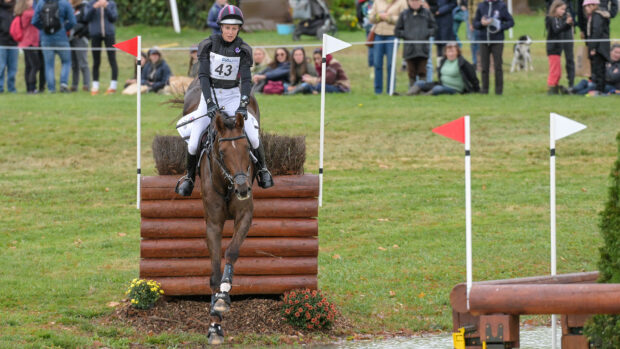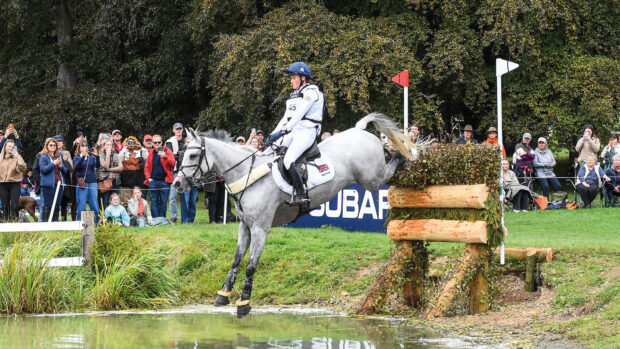Philip Surl competed up to five-star level and is now a British Eventing technical advisor and top-level international technical delegate. He is also a coach and manager of Britain’s eventing Nations Cup teams. Here, he talks about officials’ roles, how the sport has changed and more
Eventing is far more collaborative than 20 years ago. My involvement as a technical advisor (TA) for British Eventing (BE) came about partly because as a rider, I felt frustrations around certain aspects of events. It was a natural progression to become a technical delegate (TD) at international (FEI) events.
There was a time when if riders didn’t like a fence, they would be told that’s what it is and it’s the same for everyone. Now, discussion between riders and officials is hopefully more collaborative.
There will always be complaints – why was an event abandoned so late, why did a fence ride badly? But there are ways to feed back now, by speaking directly to officials or through the rider rep system.
The use of video is the other big change. I have a good relationship with Equireel and An Eventful Life, who cover nearly all the national events and are helpful about pulling clips for us when needed. Last year at Burghley, we used 36 static cameras to help with decisions, particularly around the 15 penalties for missing a flag.
I’d like to see the use of technology developed further. When Hawk-Eye first came into tennis, players didn’t like it, but now it’s accepted and gives clear-cut decisions. Perhaps we should embrace something similar.
How officials work
Before an FEI event, the TD liaises with the course-designer about the track.
The TD must be able to challenge the designer in a positive way. If you’re uncomfortable with a fence, you try to make tweaks and find a middle ground. It should never get to the point where you’re walking the course with the designer and ground jury and you haven’t resolved the issue at fence 15.
As a TD at Burghley this year, I’ve already met with course-designer Derek di Grazia on-site four times. I went to Tokyo six times in advance. At the Olympic Games, the TD role expands so you sign off on everything from the grooms’ accommodation to the transport for volunteers and breaks.
During the event, the TD or TA runs the technical aspects and acts as an information gatherer. Whether it’s a complex run-out or improper behaviour, I’ll deliver evidence to the BE steward at a BE event or FEI ground jury so they can make a decision.
If riders tell me they had an issue at an event, I’ll ask whether they spoke to anyone; they often say they didn’t know who to approach. Maybe we need to communicate who the officials are more clearly to competitors.
If it’s a rules question, such as about tack, that would sit with the steward. If someone doesn’t understand a black flag option or queries a run-out, that would go to the TA or TD.
Sometimes people talk about the “watch list”. There is a discipline list, for wrongdoing such as hitting a horse five times or abusing an official or volunteer. Then there’s an incident list, which comes in if the TA has had a chat with a rider – and perhaps their parents and coach for a younger rider – if, for example, they were out of control across country.
The TA or steward will be notified at the rider’s next event and if they’re out of control in the warm-up there, it can be flagged up. People might think it’s negative to be monitored, but the sport has its risks. If a young rider repeatedly finishes 40 seconds inside the time and then has an accident, parents could legitimately ask why no one had a word earlier.
Always learning
Whether it’s at BE90 or five-star, it’s never boring seeing horses tackle a track you’ve seen evolve and you’re always learning, which is what makes it engaging.
We have our challenges in eventing in Britain, but the way the sport is run here is second to none. We’re fortunate to have an amazing volunteer base and extremely professional people in so many key areas, which allow the sport to run successfully and safely.
- What changes have you seen in eventing? Write to hhletters@futurenet.com
- This exclusive column will also be available to read in Horse & Hound magazine, on sale Thursday 11 July
You might also be interested in:

British eventers triumph for second year in a row at prestigious CHIO Aachen as course juggles leaderboard

‘If it was fantasy football, we could sell our players to other teams’ – Tom McEwen on the Olympics

‘I’m learning French!’ – Yasmin Ingham shares her Paris Olympic preparations

Subscribe to Horse & Hound magazine today – and enjoy unlimited website access all year round
Horse & Hound magazine, out every Thursday, is packed with all the latest news and reports, as well as interviews, specials, nostalgia, vet and training advice. Subscribe today and enjoy the magazine delivered to your door every week, plus unlimited website access and digital versions of the magazine dating back to September 2012.



